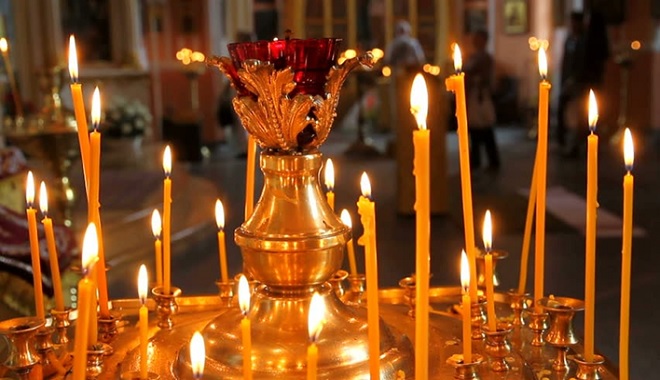Lent: the other dimension of life
28 February 2023Amid the turbulence of our life, the deafening noise surrounding us, the long and pointless conversations on the telephone or in person, the stress and uncertainty regarding the state of the world today and tomorrow, the Church offers us the period of time of Great Lent.
What meaning can this period, beginning with Monday in the first week and lasting until Great Saturday, have for all of us who live the modern way of life, with the features we mentioned above?
Because, frankly, unless the Church can offer us a meaning of life which is tangible and consequential- beyond mandates and prohibitions- and unless the time of Great Lent brings another dimension to our frantic life, then it isn’t worth bothering with.

The Church as a way of life is what all of us want in the depths of our heart: peace, respite, completeness and an experience of eternal life. Nevertheless, the inability to attain this is a given, because along with the desire there are also the passions which, as ailments of the soul, confuse and upset us, leading us astray into chaos.
The period of Great Lent, which we’re called upon to experience every year as Christians, becomes the occasion for a taste of another way of life, different from that which we live during the rest of the year. It’s a chance to seek longingly for the kingdom of God, as joy and resurrection.
Through the fast, we know by experience that the strength of the body doesn’t depend entirely on food and that we need God’s grace more than material goods. This is why the fast must be accompanied by prayer. The daily Compline in church, the pre-sanctified liturgies, the Salutations, and the long Sunday liturgies, together with ‘Lord Jesus Christ have mercy on me’, privately during the course of the day, make the fast a time of freedom and independence from material things and differentiate it from mere dietary concerns.
It’s clear that such an effort requires a concentration of forces, which is why we’re called upon to ‘be silent’ during the fast; that is to reduce lengthy and idle conversations which diffuse the powers of our soul and exhaust the mind.
God doesn’t ask us to abandon family and occupation in order to meet him. Since we live in the world, we’re called upon to live, outwardly, as everyone else does. But he does invite us to find him within the locus of our heart, telling us that ‘the kingdom of God is within you’.
The descent into the Hades of our self is accompanied by self-knowledge, without which we experience the illusion of self-justification. Self-knowledge leads to humility and to contrition of the heart, which inevitably brings us to search for God’s mercy, through the Jesus prayer. True prayer leads us to a real desire for a change of life, that is repentance. This is reinforced and brought into the Church through the sacrament of confession, which returns us, like the prodigal son, to the table of our Father- the divine eucharist.
This whole internal journey from sin to repentance, from the darkness of the self into the light of Christ, already brings us to Easter, to Pascha [from pesach, which means the Passover] or ‘the passage/crossing over’. So Easter isn’t a feast that interrupts life’s routine, but is rather the transition into a new life. The Lord’s Pascha becomes our own Pascha and his resurrection becomes ours.
May we all indeed enjoy the experience of this journey of suffering and resurrection during this year’s Great Lent and Easter.






